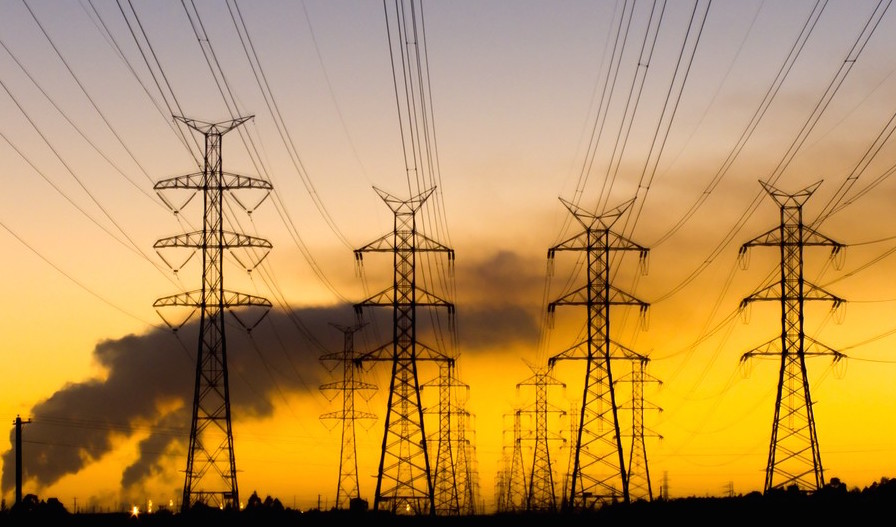- Nigeria Loses $29.3b Yearly to Erratic Power Supply
The Electricity Generation Companies (GenCos) at the weekend said the country loses $29.3billion yearly to low supply resulting from load shedding and inadequate facilities.
The Executive Secretary, Association of Power Generation Companies (APGC), Joy Ogaji, in an emailed response to questions, urged the Transmission Company of Nigeria (TCN) to upgrade its network to absorb the 8,000megawatts (Mw) capacity of the GenCos.
She said: “In urban areas where electricity access has been provided, the availability of electricity supply is drastically low, due either to load shedding or inadequate power supply facilities. It is estimated that the Nigerian economy is losing $29.3 billion annually, due to the lack of adequate power.”
Ogaji, a lawyer, also sought a strict regulation of the transmission and distribution chains of the Nigeria Electricity Supply Industry (NESI) to compel the distribution companies (DisCos) to remit the revenue they collect from their customers to the market operator.
She said: “If power output must improve, the transmission and distribution arms of the power chain must be strictly regulated. The transmission grid must be upgraded to ensure 8000Mw available capacity from GenCos is put on the grid.
“The DisCos must be strictly monitored to ensure revenue collected for electricity supplied is remitted. This is the link to infrastructure development and future investment along the power chain.”
Justifying Federal Government’s continued funding of the GenCos despite the privatisation, she said the government intervention is “because investment on generation is at the instance of the off-taker (NBET- FGN). Also because they have kept to the terms of their contract with government’’.
“GenCos, despite the stern challenges they are faced with from inception till date, have in association with the Federal Government’s objective to enhance the efficiency of the nation’s power industry as well as make energy affordable and available to consumers, kept to the terms of the industry agreements they entered into with the Bureau of Public Enterprises (BPE), which defines the relationship between the privatised companies and the government (represented by BPE and Ministry of Finance incorporated (MOFI) with a five-year period to recover lost capacities. Records from BPE shows that as at the takeover date in November 2013, available generation capacity was 4,500Mw.
“Also installed generation capacity stands at 13,496Mw as against 12,500Mw at take over. GenCos engaged on a massive capacity recovery plan with their acquired asset and achieved in no time lost capacities increasing available capacity to 7,913Mw.”
She said NESI has huge potential, but yet to demonstrate sustainable returns to investors across the electricity supply value chain.
Ogaji said cash flow within the industry is the fundamental problem preventing Nigerians from enjoying continued and sustainable improvement in electricity supply and the gains of the power sector reforms or privatisation.
She said: “The reason for this liquidity squeeze we feel in the sector is that the sector is working against the established principles of electricity supply value chain.
“The first principle being that while energy flows from the left to the right (via the fuel (gas or water) supplier to the fuel transporter (NGPTC), to the power generator (GenCos), to the power transmitter (TCN), to the power distributor (DisCos) and then to our homes or industry/commercial enterprises. The payment/money for the energy is expected to move from right to the left.
“That is, from consumers to the DisCos – statutorily empowered to collect and account for customer payments, on behalf of the value chain.
“This, unfortunately, is not happening as the GenCos are having a current market invoice shortfall of over 75 per cent. The question is: ‘which business can survive on a 25 per cent monthly invoice payment. Are Nigerians not willing or able to pay for the power generated?’ ”
Ogaji said GenCos increased available generation capability was not translated to corresponding increase in power supply to consumers, so consumers believe that the system has failed.
According to her, the privatisation of the sector had exposed the its structural weakness.
She said: “As investors, GenCos are worst hit in this electricity market logjam. They generate power and the power is consumed and not paid for. The Transition Electricity Market (TEM) regulation betrayed GenCos. Ineffective contracts as against the TEM promise; imposed quasi-PPA; constrained down and out – unrecognised demand capacity; wrongly defined available capacity.
“The above facts culminate to the understanding that whatever is on paper as an outstanding to any GenCo is less than the actual. GenCos are all casualties – a collateral damage to the economy.
“Natural justice, apart from PPA (power purchase agreement) clauses, requires that the GenCo be paid full for the declared available capacity and energy in the absence of the SO’s instruction to ramp down. Obvious commercial justification is that the GenCo has mobilised and paid for every input variable – fuel, labour and all other overhead costs – needed to produce energy as declared.
“More than four years after the establishment of NBET, what is evident to both international and local investors in the power sector is that NBET is deficient in the required capitalisation to meet its obligations.
“It also lacks the ability to provide adequate and sustainable payment securities backed by the Federal Government under PPAs. In the light of these glaring deficiencies, international organisations like the World Bank and the African Development Bank have had to create credit enhancement/payment support instruments in the form of partial risk guarantees to protect the companies.”

 Forex2 weeks ago
Forex2 weeks ago


 Naira1 week ago
Naira1 week ago
 Naira4 weeks ago
Naira4 weeks ago
 Company News4 weeks ago
Company News4 weeks ago




 Naira1 week ago
Naira1 week ago




 Naira3 weeks ago
Naira3 weeks ago
 Billionaire Watch1 week ago
Billionaire Watch1 week ago




 Naira7 days ago
Naira7 days ago


















